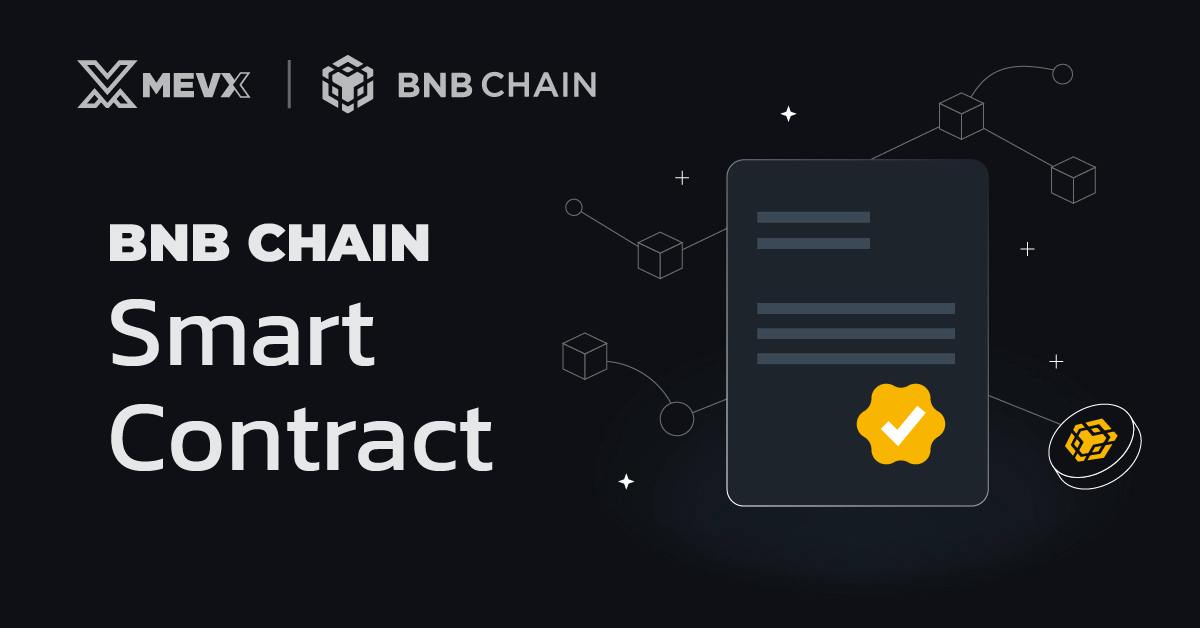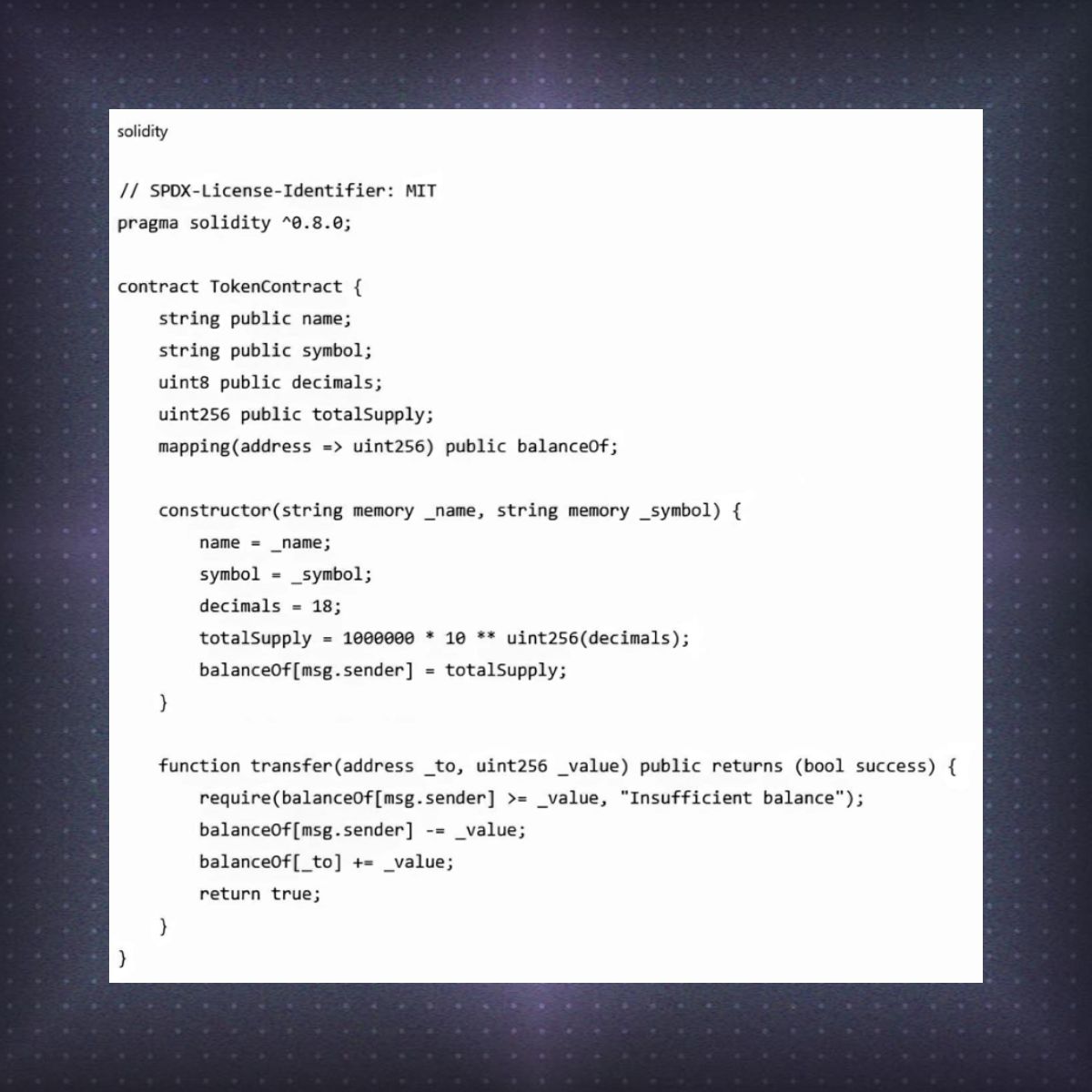In this rapidly changing world of blockchain technology, smart contracts have emerged as an innovative medium to fundamentally change how we conceptualize and execute digital agreements. The BNB Chain (BNB) positions itself as one of the most powerful emerging platforms in the development of smart contracts with competitive advantages that are unparalleled in terms of speed and cost, while also being highly compatible. This chapter sheds light on what smart contracts are, their applications in various fields, and in particular, the advantages of deploying them on BNB Chain.

BNB – Smart Contract
Understanding Smart Contracts
A smart contract is a self-executing program resident on a blockchain. It automatically enforces the terms of an agreement between two or more parties. Contrary to traditional contracts, which require manual enforcement with intermediary support, smart contracts are the following:
- Self-executing: Where their execution is whenever certain conditions are met
- Intermediary-free: Whereby all transactions occur without third-party intermediaries
- Transparent and immutable: It keeps a public, unalterable record of each transaction and agreement made.
These characteristics make smart contracts more efficient, secure, and reliable than their traditional counterparts and open new vistas for interactions of a trustless nature.
Key Characteristics
- Decentralized: Smart contracts are stored on the blockchain, wherein no party can exert control over them.
- Transparent: All transactions occurring on the platform are publicly verifiable, hence allowing insight into these processes.
- Secure: The encryption and validation mechanisms across the blockchain reduce the possibility of tampering or fraud.
- Autonomous: Once deployed, smart contracts work without governance by hand.
- Cost-effective: It means that smart contracts reduce lots of administrative and processing costs by cutting out the middlemen.
Smart Contracts in the Blockchain Ecosystem
The following are primary use cases:
- Decentralized Finance (DeFi): Smart contracts, power lending platforms, yield farming, and liquidity pools, creating an environment where users can interact financially without intermediaries.
- Token Management: Custom tokens are easily created and managed, streamlining processes like initial coin offerings (ICOs) and token distributions.
- Supply Chain Management: With smart contracts, tracking product origins, automating payments, and managing inventory become more efficient and transparent.
- Gaming and NFTs: Smart contracts support in-game asset ownership, automatic royalty distribution, and trustless in-game economies, allowing players true ownership over digital assets.
- BNB Smart Chain: A Powerful Smart Contract Platform
Technical Architecture
The BNB Smart Chain offers a high-performance environment for deploying smart contracts, characterized by:
- Low Transaction Costs: Making transactions affordable for large-scale and microtransactions alike.
- High-Speed Processing: BNB Chain’s design ensures rapid transaction confirmation, supporting real-time applications.
- Ethereum Virtual Machine (EVM) Compatibility: EVM compatibility allows Ethereum developers to easily transition to or deploy on the BNB Chain, widening its appeal and ease of use.
Deployment Ecosystem
Have a look at Development Tools and Deployment Requirements
Development Tools
- Solidity: The primary programming language for BSC smart contracts.
- Hardhat, Truffle, Remix IDE: Popular frameworks and development environments for building, testing, and deploying smart contracts.
- Web3.js and Ethers.js Libraries: Facilitate interaction with BNB Chain, enabling seamless integration of smart contracts into decentralized applications (DApps).
Deployment Requirements
To deploy a smart contract on BNB Chain, developers need:
- BNB Tokens: To cover gas fees for deploying and interacting with smart contracts.
- Web3 Wallet: Such as MetaMask, which facilitates contract deployment.
- Compiled Smart Contract Code: Ready-to-deploy code, typically compiled from Solidity.
Sample Smart Contract Code
Here’s a simple token contract written in Solidity to illustrate the structure of a smart contract on the BNB Chain:

Sample structure of a smart contract
Comparative Analysis: BNB Smart Chain vs. Ethereum
The following table shows the comparison of key features:
| Feature | Ethereum | BNB Chain |
| Consensus Mechanism | Proof of Stake (PoS) | Proof of Staked Authority (PoSA) |
| Transaction Fee | $10-$50 | $0.10-$0.50 |
| Transaction Speed | 15-30 seconds | 3-5 seconds |
| Scalability | Limited | High |
Comparative Analysis
Unique Advantages of BNB Smart Chain
BNB Chain’s strengths include:
- Significantly Lower Transaction Fees: Making it accessible for smaller and more frequent transactions.
- Faster Block Confirmation Times: Providing faster, more reliable transactions.
- High Scalability: Supports thousands of transactions per second, ideal for DeFi and high-volume applications.
- Lower Entry Barrier for Developers: Affordable and EVM-compatible, it’s easier for Ethereum developers to transition to BNB Chain.
- Robust Ecosystem Support: Backed by Binance, BNB Chain benefits from a vast community and robust ecosystem resources.
Best Practices for Smart Contract Development
Smart contract security can be ensured through audits of code and the use of established libraries, such as OpenZeppelin, to prevent common coding errors and vulnerabilities. Rigorous testing and continuous incremental development will also help identify issues as early as possible, while continuous integration facilitates smooth updates and maintenance.
Emerging Trends and Future Outlook
As blockchain continues to evolve, there will be even more interoperability between chains, which will further create connectivity and scalability over networks. This will lead to greater sophistication of applications, especially on platforms like BNB Chain that are focused on efficiency and low cost, resulting from the growth of the use of DeFi and integrations to the real world.
Conclusion
The BNB Smart Chain fronts blockchain innovation, providing low-cost, high-performance grounds to deploy smart contracts. Due to its unique blend of performance and accessibility along with extensive support, BNB Smart Chain provides the perfect development ground for scalability and efficiency in blockchain solutions.
If you are a developer, entrepreneur, or blockchain enthusiast looking to try out new ideas, this is the best time to start exploring the transformative power of smart contracts on BNB Smart Chain. Get started now by experimenting with sample projects, joining developer communities, and keeping up to date with the latest technological advancements.
Share on Social Media:
